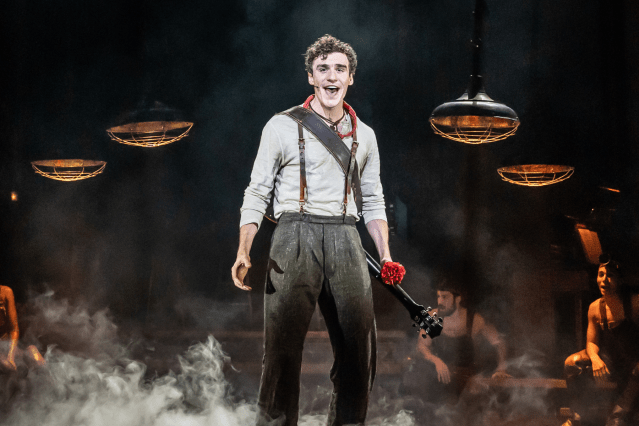Sweat at the Royal Exchange Theatre – review
Lynn Nottage’s award-winning play returns to UK shores

Peer up at the rafters inside the Royal Exchange’s theatre module and you’ll see a canopy of steel, pipes running end to end to form a metal lattice. If you didn’t look back down, while the hydraulic thuds of machinery bore into your ears, you could well believe you’re in the bowels of the factory depicted in Lynn Nottage’s play about the deindustrialisation of America.
Sweat won the Pulitzer Prize in 2017. Director Jade Lewis is content to let that do the work. She rests on those laurels without doing anything directorially to ignite it into a sucker-punch piece of drama or drive home its themes of working-class division, even as we stand on the cusp of elections on both sides of the Atlantic.
Fortunately the play and the cast can do the heavy lifting. It’s set in Pennsylvania in 2000 and 2008 – election years when America tilted from Democratic to Republican, and back again – primarily at a bar where the factory workers crash. Carla Henry, Pooky Quesnel and Kate Kennedy play three friends who have carried on these jobs from the generations before them, as their sons now also do. However, an opportunity for promotion – and with it, escape from the debilitating factory floor – exposes the political and racial tensions below the surface.
It’s one of the few great plays to examine how economic deterioration doesn’t just rip open rifts between classes but within them. And Nottage reminds us how these people turn against each other as a result of those above them. Barman Stan tells his assistant that pay is managed by his boss, and newly promoted Cynthia insists she’s powerless to decisions about her friends’ jobs by the higher-ups.
Carla Henry’s costume changes from workwear to businesswear, but the transition is also physiological. No longer swaggering while delivering a feisty jibe, she becomes straight-backed and contained – visually out of sync with the friends. And Henry introduces subtle gestures – squeezing her hands nervously by her sides – that show she’s not gained power but lost it.
The first half, like the town, seems in terminal decline. Lewis’s rudderless direction finds no way to build atmosphere or enliven the long conversations and slow plot progression. Although Nottage creates a satisfying tragic structure as the pieces converge in a more gripping second half, it’s effortful to get there.
Good Teeth’s design initially looks equally functional, but the square stage gradually resembles a boxing ring. The cast lean on the outer railings and then lunge at each other like springboarding wrestlers. Above, rusty concrete blocks hang as motionless as the characters’ fortunes.
There’s something instinctively physical about all the tensile performances, reflecting characters who talk about working with their hands. Quesnel gnaws on her fingers, and Lewis Gribben’s livewire Jason inherits her scrappiness, as well as racist impulses, although his “How come there’s no white history month?” lands more parodically than it would’ve done when the play premiered a decade ago.
Abdul Sessay expresses Chris’s aspirations by racing, pounding forward, jabbing his finger out at the distance as he cries: “I’m out there every morning”. We see the betrayal in his look of bewilderment at how Cynthia, his own mother, leaves him abandoned.
Underscoring the slicing through of this community, an angle grinder roars into life without warning overhead, erupting a muzzle flash of bright sparks. Not enough are provided by the direction of the play itself.














